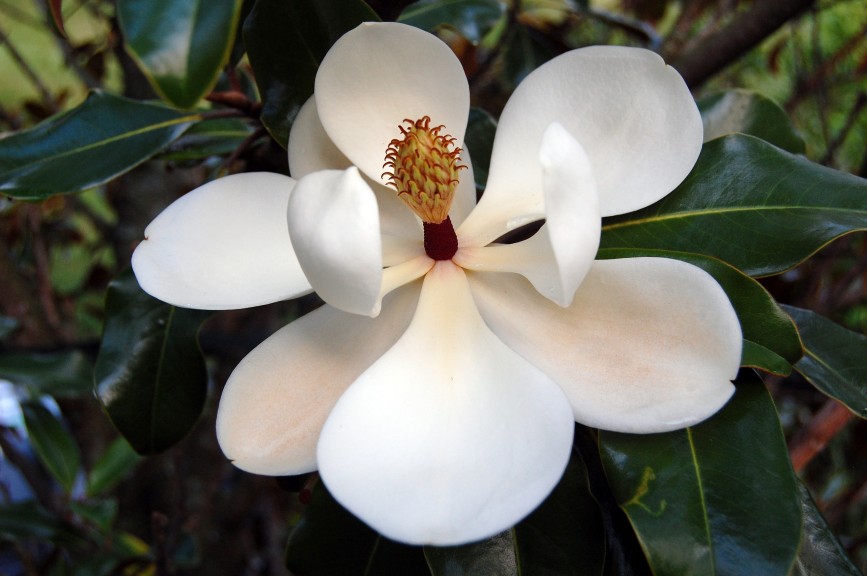“Gardening has frequently been one of the most exhilarating recreations of royalty.” So wrote the 455th edition of Chambers’ Edinburgh Journal, published on September 18, 1852. This statement led to a brief story of the friendship of Lysander, a Spartan admiral, and Cyrus the Younger, son of then-Persian King Darius II. The passage from Chambers’ Edinburgh Journal is reprinted below for your enjoyment.

“Royal Gardening” from Chambers’ Edinburgh Journal No. 455
“When Lysander, the Lacedemonian general, brought magnificent presents to Cyrus, the younger son of Darius, who piqued himself more on his integrity and politeness than on his rank and birth, the prince conducted his illustrious guest through his gardens, and pointed out to him their varied beauties. Lysander, struck with so fine a prospect, praised the manner in which the grounds were laid out, the neatness of the walks, the abundance of fruits planted with an art which knew how to combine the useful with the agreeable; the beauty of the parterres, and the glowing variety of flowers exhaling odours universally throughout the delightful scene. ‘Everything charms and transports me in this place,’ said Lysander to Cyrus; ‘but what strikes me most is the exquisite taste and elegant industry of the person who drew the plan of these gardens, and gave it the fine order, wonderful disposition, and happiness of arrangement which I cannot sufficiently admire.’ Cyrus replied: ‘It was I that drew the plan, and entirely marked it out; and many of the trees which you see were planted by my own hands.’ ‘What!’ exclaimed Lysander with surprise, and viewing Cyrus from head to foot—’is it possible, that with those purple robes and splendid vestments, those strings of jewels and bracelets of gold, those buskins so richly embroidered; is it possible that you could play the gardener, and employ your royal hands in planting trees?’ ‘Does that surprise you?’ said Cyrus. ‘I assure you, that when my health permits, I never sit down to table without having fatigued myself, either in military exercise, rural labour, or some other toilsome employment, to which I apply myself with pleasure.’ Lysander, still more amazed, pressed Cyrus by the hand, and said: ‘You are truly happy, and deserve your high fortune, since you unite it with virtue.'”
Some Thoughts on the Story of Lysander and Cyrus’s Garden
Lysander was immediately taken by Cyrus’s beautiful garden, and could not find enough good things to say about it. Each aspect of the garden charmed and transported him. He praised the gardens, in true Greek fashion, for having “fine order.” But the gardens were not only well-ordered, they were also well disposed and happily arranged, pleasing in every sense. Naturally, he praised whomever had planned the garden, for this individual must have had the “exquisite taste” to design such a garden and the “elegant industry” to reify his ideas.
The punchline, of course, comes when Lysander learns that it was Cyrus himself who planted the garden. Cyrus explained: “It was I that drew the plan, and entirely marked it out, and many of the trees which you see were planted by my own hands.” The scales fell from Lysander’s eyes when he contemplated the royally adorned prince before him toiling in the fields. Cyrus noted Lysander’s surprise, and he informed his guest that, despite his royal status, he daily sought to engage in “toilsome employment” until tired, and that he took pleasure in doing so.
Lysander, in admiration, took Cyrus’s hand and told him that “You are truly happy, and deserve your high fortune, since you united it with virtue.” Here, in my view, Lysander simultaneously compliments Cyrus’s admirable work ethic and his refined taste. Not only was he a man of perfected aesthetic sensibilities, but he also possessed the spirit to apply himself to creating aesthetic things by hand and living a vigorous life. Thus, it seemed natural that the fortunate man with an ordered intellect and lively complexion would be the happiest of all men.
The account, of which I was not aware until today, is a charming one. Gardens are aesthetic, and superior gardening requires aesthetic sense and toil to turn that sense into reality. Surrounded by my indoor houseplants, I can say that gardening can be exhilarating and rewarding for commoners, even on a vastly smaller scale than what the Persian royalty undertook. This anecdote reveals that combining royal status with a fine-tuned sense of beauty and a strong work ethic even when work was unnecessary was something to be admired. Today too, it stands as a description of a life lived well.